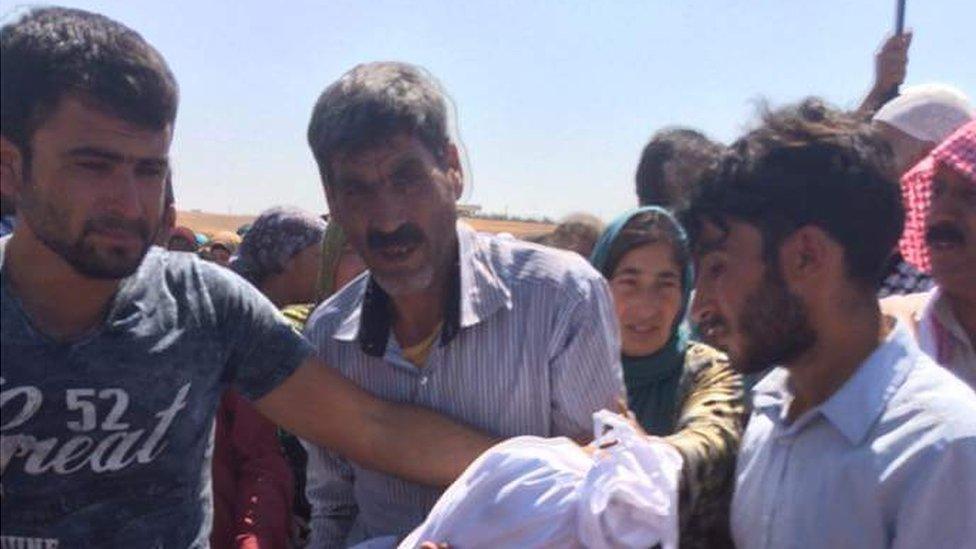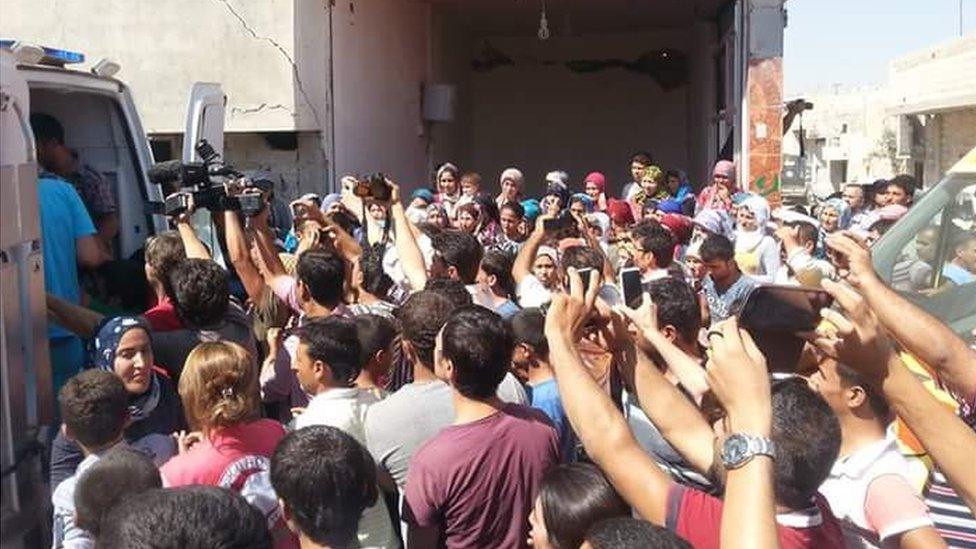Drowned migrant boy Alan Kurdi is buried in Syria
- Published
Speaking at the burial for his wife and sons, Alan Kurdi's father Abdullah said: "I have no future any more. My future is gone"
The bodies of drowned Syrian boy Alan Kurdi and members of his family have been buried in Kobane in Syria after being transported there from Turkey.
Alan's father crossed into Kurdish-controlled Kobane with the coffins.
Three-year-old Alan, his brother Galip, five, and his mother Rehan died trying to reach the Greek island of Kos.
Pictures of Alan's body on a beach in Turkey sparked worldwide outrage at the plight of people fleeing the war in Syria for Europe.
A convoy of vehicles with the bodies crossed into Kobane from the Turkish border town of Suruc, officials say.

Alan Kurdi's death pricked consciences around the world after his body was pictured washed up on a beach

The three bodies were met by a crowd of journalists, mourners and well-wishers upon their arrival in Kobane
Alan's father Abdullah said his family died after the boat they were capsized shortly after leaving Turkey.
Images of Alan's body being recovered from a beach near Bodrum caused an outpouring of sympathy for the plight of those fleeing Syria's civil war and criticism of foreign governments for not doing enough to answer the crisis.
Thousands of migrants have died this year trying to reach Europe by sea.
Kobane became a symbol of Kurdish resistance in January after a siege by Islamic State militants lasting five months was repelled in a battle that made international headlines.
Thousands of the city's previous 400,000 population began to return following IS's defeat.
But in June the jihadists attacked Kobane again, detonating car bombs and launching an assault, prompting a renewed exodus of refugees from the city.
Although the city has never been important strategically, correspondents say that its loss after heavy street-fighting and coalition aerial bombardment still hurts the militants.